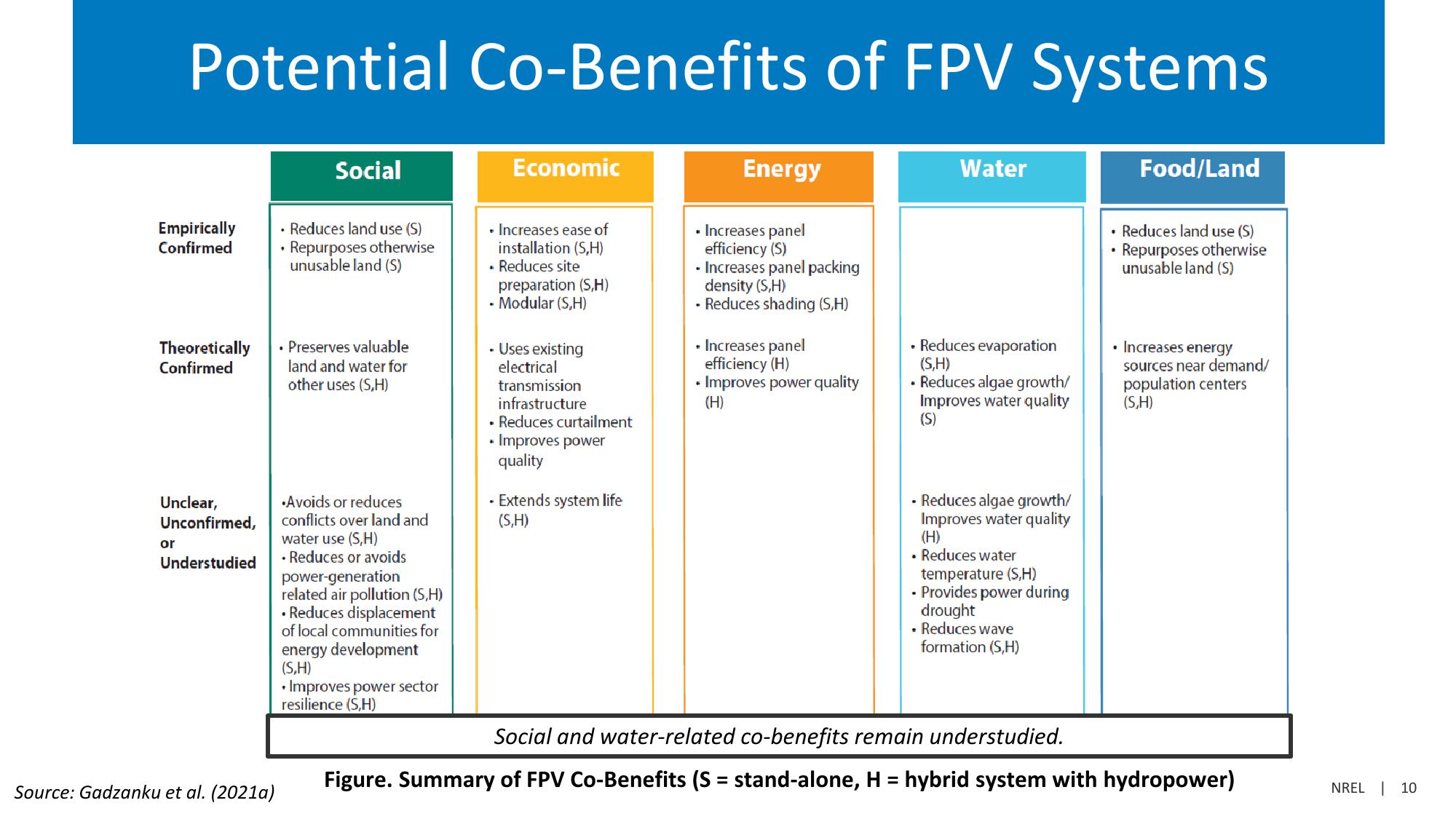Investor Presentation
Potential Co-Benefits of FPV Systems
Social
Economic
Energy
Water
Food/Land
Empirically
Confirmed
.
• Reduces land use (S)
Repurposes otherwise
unusable land (S)
Theoretically
Confirmed
• Preserves valuable
land and water for
other uses (S,H)
Unclear,
Unconfirmed,
or
Understudied
⚫Avoids or reduces
conflicts over land and
water use (S,H)
• Reduces or avoids
power-generation
related air pollution (S,H)
• Reduces displacement
of local communities for
energy development
(S,H)
• Improves power sector
resilience (S,H)
• Increases ease of
installation (S,H)
* Reduces site
preparation (S,H)
⚫ Modular (S,H)
• Uses existing
electrical
transmission
infrastructure
• Reduces curtailment
• Improves power
quality
• Extends system life
(S,H)
• Increases panel
efficiency (S)
• Increases panel packing
density (S,H)
• Reduces shading (S,H)
⚫ Increases panel
efficiency (H)
Improves power quality
(H)
• Reduces evaporation
(S,H)
• Reduces algae growth/
Improves water quality
(S)
• Reduces algae growth/
Improves water quality
(H)
• Reduces water
temperature (S,H)
• Provides power during
drought
Reduces wave
formation (S,H)
• Reduces land use (S)
Repurposes otherwise
unusable land (S)
• Increases energy
sources near demand/
population centers
(S,H)
Social and water-related co-benefits remain understudied.
Figure. Summary of FPV Co-Benefits (S = stand-alone, H = hybrid system with hydropower)
Source: Gadzanku et al. (2021a)
NREL 10View entire presentation